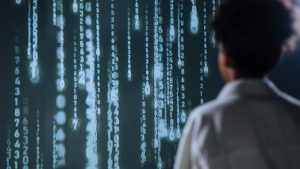The Role of Social Media in Modern Education
Social media has become an indispensable part of our daily lives. From connecting with friends and family to sharing our life experiences, it has revolutionized the way we communicate and interact with others. However, the impact of social media is not limited to personal relationships. In recent years, it has also made its way into the education sector, transforming the way students learn and educators teach. With the rise of modern education, the role of social media has become increasingly significant. In this article, we will explore the various ways in which social media is shaping the education landscape and the benefits it offers to both students and educators.
The Rise of Modern Education
Gone are the days when education was confined to classrooms, textbooks, and lectures. With the advancement of technology, education has evolved into a more dynamic and interactive process. Modern education focuses on experiential learning, which involves hands-on and practical experience for students. It also encourages collaboration, critical thinking, and problem-solving skills. Social media plays a crucial role in facilitating these aspects of modern education.
Enhancing Student Engagement
One of the biggest challenges for educators is to keep students engaged and interested in learning. With the short attention span of today’s generation, traditional teaching methods may not always be effective. Social media offers a variety of tools and platforms that make learning more interactive, fun, and engaging for students. For instance, teachers can create online quizzes, polls, and games to make learning more exciting. This not only helps students retain information better but also encourages healthy competition and teamwork.
Breaking Geographical Barriers
Another significant advantage of social media in education is that it breaks geographical barriers. With the availability of online platforms, students and educators from all over the world can connect and collaborate. This allows for a diverse exchange of ideas and perspectives, making the learning experience more enriching. Students can also access learning materials and resources from anywhere, anytime, making education more accessible and convenient.
Facilitating Communication and Collaboration
Social media provides a platform for students and educators to communicate and collaborate outside of the classroom. With the use of tools such as discussion boards, chat groups, and virtual classrooms, students can continue their discussions, share ideas, and seek help from their peers and teachers. This not only fosters a sense of community and support within the class but also empowers students to take charge of their learning.
Connecting with Industry Professionals
Social media also enables students to connect with industry experts and professionals. This opens up a world of opportunities for students to gain insights and knowledge directly from people who are working in their fields of interest. It also allows them to build connections that can be beneficial for their future career prospects. Social media platforms like LinkedIn are particularly useful for students to network and explore career options.
Promoting Creativity and Self-Expression
Social media offers students a creative outlet to express themselves and showcase their talents. They can create and share videos, infographics, animations, and other multimedia content that reflects their learning. This not only allows them to think outside the box but also motivates them to explore their passions and interests. Social media also offers a platform for students to receive feedback and recognition for their work, boosting their confidence and self-esteem.
Conclusion
The impact of social media on modern education is undeniable. It has changed the way students learn, interact, and engage with the world. The benefits it offers, such as enhanced engagement, diverse perspectives, and access to resources, make it an essential tool for educators. However, it is crucial to note that the use of social media in education must be guided and monitored to ensure its effectiveness and safety for students. With the right approach, social media can play a significant role in shaping the future of education.





